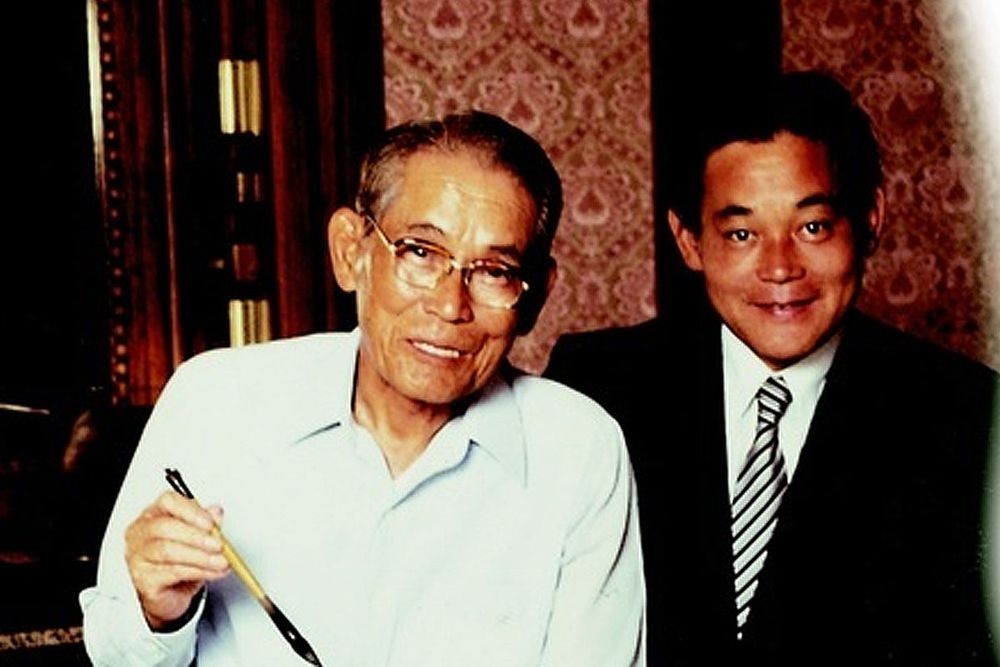
Once again, the story of Lee Byung Chul, the founder and first chairman of the Samsung Group, is stirring up a buzz. Last year, an online community was abuzz with a fact-checking post regarding the three things Chairman Lee failed to accomplish.
The post’s author began by citing a famous quote from Lee, recorded in his autobiography, Hoam Autobiography. The quote highlighted the three things that he failed to accomplish.
So, what were Lee’s three failures? The quote recorded in his autobiography is as follows.
“There are three things that money can’t buy. First, no matter how wealthy you are, you can’t send your children to Seoul National University. Second, no matter how much you spend on coaching and equipment, you can’t hit the golf ball as you wish. Third, despite investing the most money, I couldn’t beat Mi-won.”
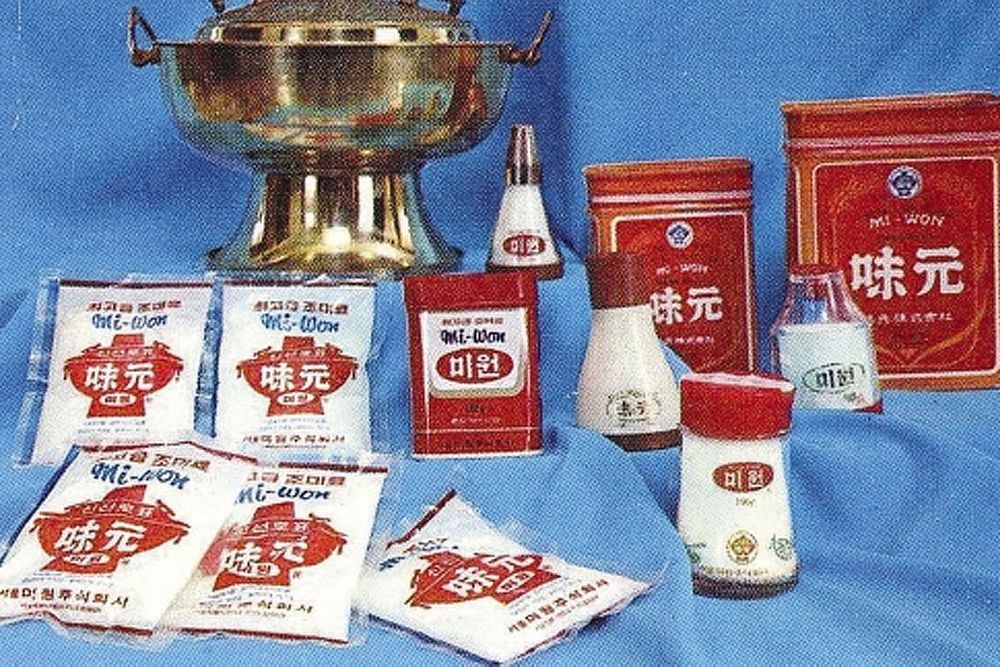
This quote was a hot topic, prompting numerous news outlets to publish articles about it. So, why couldn’t Lee beat Mi-won?
Some call this the “seasoning war.” It refers to the competition between Daesang Group, which created Mi-won, and Cheil Jedang, which created Mi-pung to catch up with Mi-won. Some call this the “seasoning war.” It refers to the competition between Daesang Group, which created Mi-won, and Cheil Jedang, which created Mi-pung to catch up with Mi-won. This is known as the war of the century, the appliance war between Samsung Electronics and LG Electronics, and the snack war between Lotte and Haitai Confectionery. The MSG health controversy also swept the era, making it a famous war.
The history of domestic seasoning started with the Japanese chemical seasoning Ajinomoto sweeping the domestic seasoning market during the Japanese colonial period and withdrawing to Japan after liberation. After the liberation from the Japanese colonial period, our country had a high demand for seasoning. Still, the supply of Ajinomoto was limited, so it was confirmed that it was smuggled or counterfeited for a while.
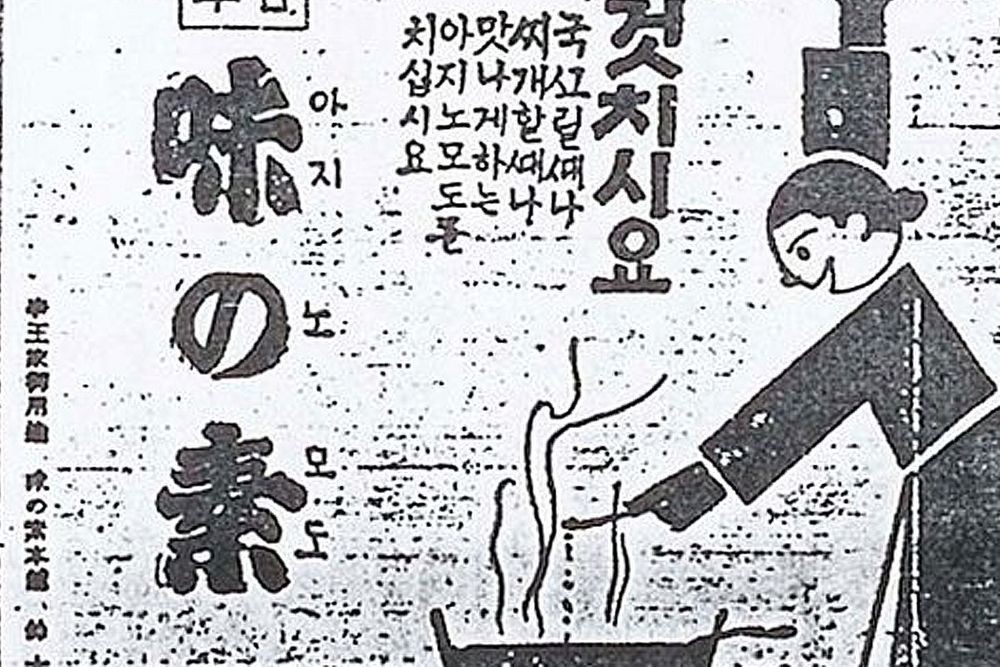
Even when Ajinomoto was traded at a price tens of times higher than the price of rice in Korea, Daesang Group founder Lim Dae Hong, who felt sorry for this, reportedly launched Korea’s first domestic seasoning, Mi-won in 1956 by establishing Donga Hwasung Industrial Co.
He is said to have crossed over to Japan without any countermeasures, acquired the manufacturing method from Ajinomoto, a representative seasoning company in Japan, and established a company. The launch of Donga Hwasung’s Mi-won was a huge hit.
It monopolized the Korean chemical seasoning market at once, and eventually, Donga Hwasung changed its company name to Mi-won Co., Ltd. in 1962. Mi-won became a company name because it swept the market and had a market share of over 50%, thus gaining the symbolism of national seasoning.
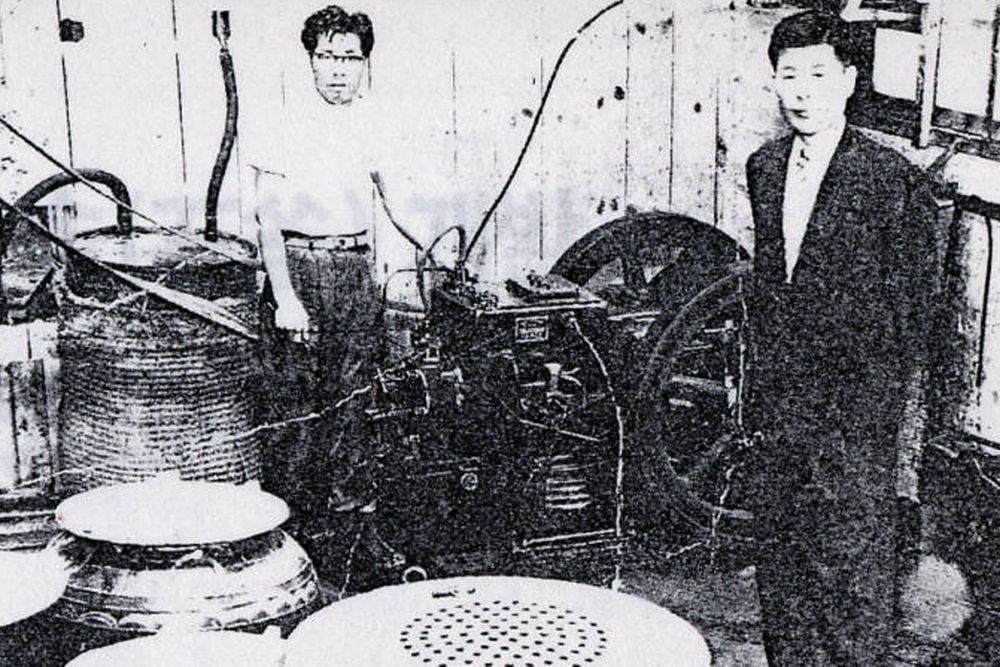
Mi-won’s popularity was tremendous at the time. It was known that the competition for Mi-won advertising models was fierce to the extent that it was considered to have become the top actress of the time if it appeared in Mi-won’s advertisement. Actresses Kim Ji Mi and Hwang Jung Soon became popular through Mi-won advertisements. At that time, it was also fashionable to gift-wrap Mi-won.
When Mi-won became popular, Cheil Jedang, a Samsung affiliate, acquired the original industry that produced the seasoning ‘Mi-pung’ and presented Mi-pung. From then on, a grand battle between the two groups unfolded, waging a marketing war and even a sensational gift advertising war.
At that time, Cheil Jedang was the first manufacturer of Samsung Trading, which grew into the largest chaebol in Korea. At the same time, Donga Hwasung, which made Mi-won, was known to be a small and medium-sized enterprise, and it was also labeled as a battle between David and Goliath.
CJ Corporation utilized its financial strength to launch an aggressive low-cost campaign and discontinued supply to businesses selling Mi-won. However, it was unable to regain its dominant market position.
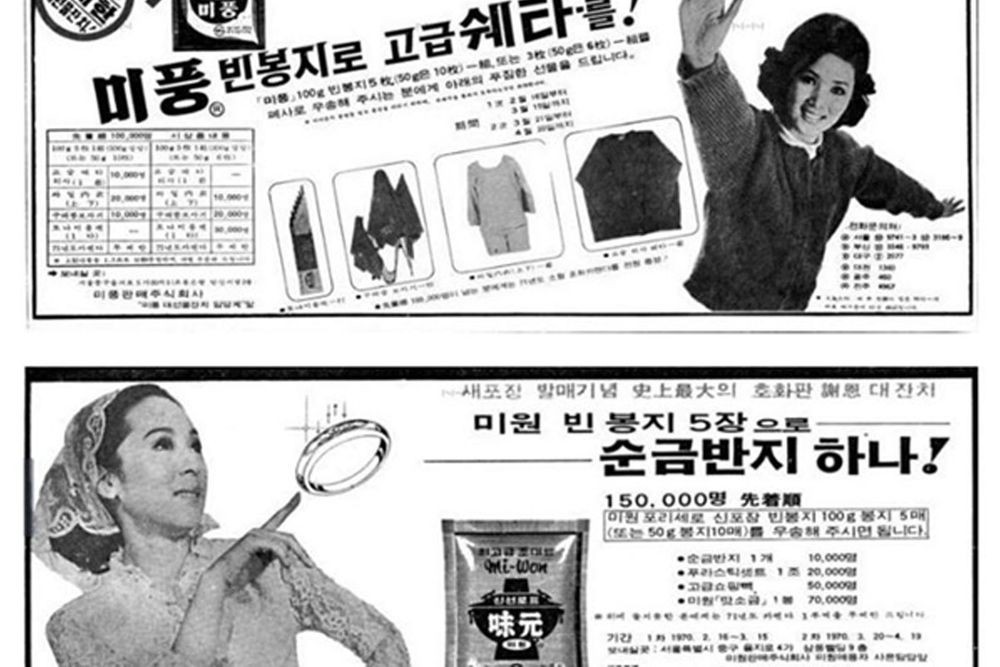
In the 1970s, Mi-pung advertised it would give a women’s sweater worth 3,000 won to the first 10,000 people who sent five empty Mi-pung bags. At that time, 3,000 won was approximately one-tenth of the average worker’s monthly salary.
In response to the new packaging launch, Mi-won held an event titled “The Largest Luxury Gift Feast in History” to give the first 150,000 people a pure gold ring weighing about 3 kg.
The fierce promotional war required the intervention of the Ministry of Commerce and Industry and the Security Bureau, and both companies announced the end of the gift event, ending the promotional war. This was an internal investigation based on the judgment that the two companies were stimulating consumers’ gambling instincts.
In 1977, there seemed to be a severe conflict between the salespeople of the two companies. When Cheil Jedang employees shouted, “Mi-won is shaking,” while promoting Mi-pung at a market, a fight started when Mi-won employees who saw this protested.
This led to a group brawl, which caused a big issue at the time.
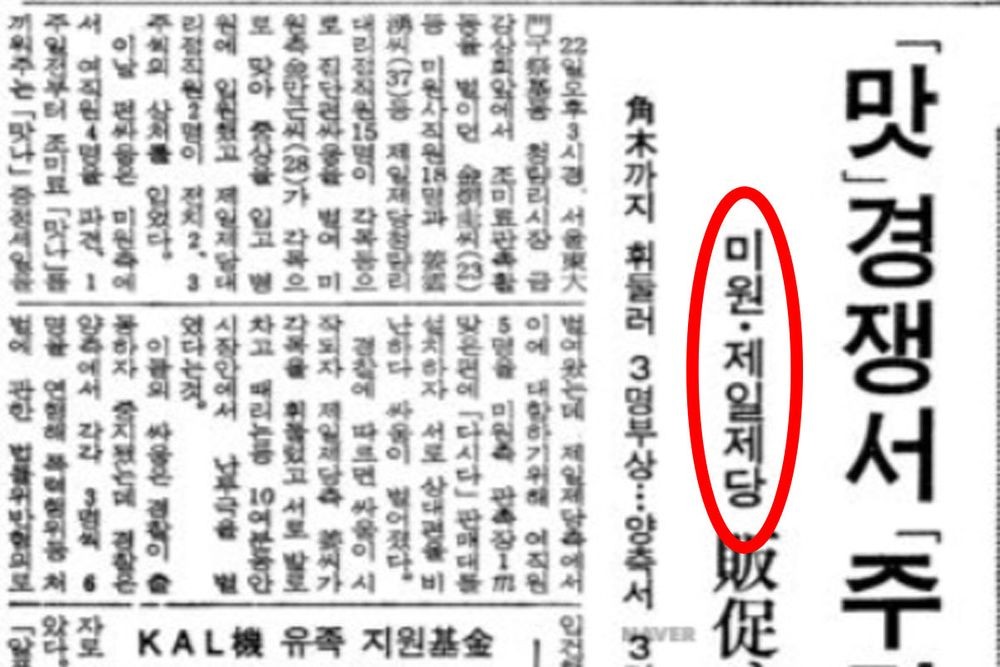
The first seasoning war ended with Mi-won’s victory. However, in 1975, Cheil Jedang launched a new product called natural seasoning beef Dashida, which took advantage of the controversy surrounding the harmful effects of MSG at the time. This led to the start of the Second Seasoning War. In response, Mi-won introduced a new product called ‘Matna.’
In the advertisement for Matna, which Mi-won released at the time, Go Doo-shim, who gained popularity as a daughter-in-law in the rural diary, and Cheil Jedang’s beef Dashida advertised Kim Hye-ja, who gained popularity through the Rural Diary.
In 1984, a brawl broke out again. Mi-won was promoting its product “Matna” at a market, and the conflict started when Cheil Jedang followed with an event on the opposite side.
Eventually, a fight broke out between the two companies, and something involving even wooden sticks appeared. Due to the MSG’s harmful controversy at the time, the sales of Dashida, which was promoted as a natural seasoning, increased greatly, and the popularity of Dashida continues to this day.
The popularity of Dashida increased after the brawl was reported, and the seasoning war was judged to have ended.
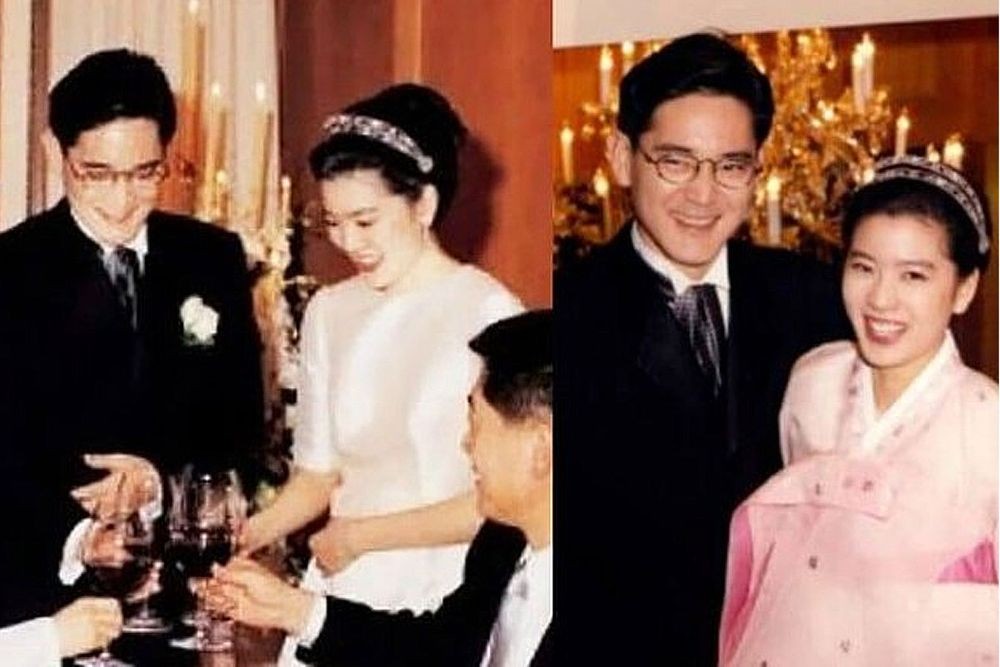
Afterward, in 1998, Im Se Ryung, the granddaughter of the founder of the Daesang Group, married Lee Jae Yong, the vice chairman of Samsung Electronics and the grandson of Cheil Jedang. Their marriage seemed to have ended the seasoning war. However, when they divorced in 2009, there were concerns that the seasoning war would resume.
It has been confirmed that Mi-won has been working hard to recover recently.
In 2010, Mi-won was relieved of the harmful controversy surrounding chemical seasoning when the Food and Drug Safety Administration announced that “MSG is harmless to the human body,” but the bad image continues.
In response, the Daesang Group tries to make Mi-won’s image younger. The seasoning war has not ended yet.
Daesang Group, which made Mi-won, is a comprehensive food specialty company that produces thousands of products, led by the gochujang brand Cheongjungwon and the kimchi brand Jonggatjip.










Most Commented